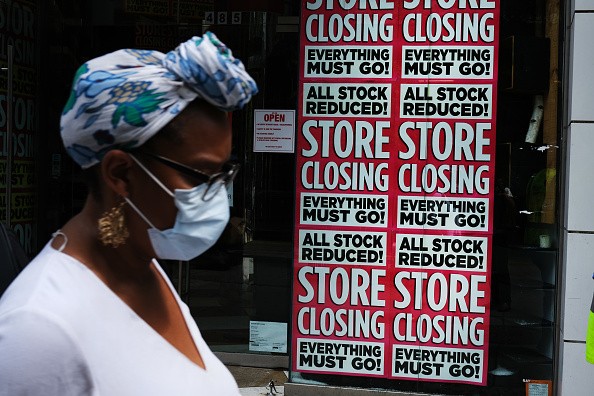5 Million Latino Businesses in US at Risk of Bankruptcy
Five million Latino businesses are at risk of bankruptcy as stimulus for small businesses is still on a deadlock at Washington, a new study revealed on Monday.
Before the pandemic, Latino businesses contributed 4% to the country's GDP and are one of the fastest-growing groups, reported Cal Matters.
Now, Latino businesses that applied for the Paycheck Protection Program saw a 21% drop in revenue for the past eight months. Costs for safety measures also rose and continued to remain high, CNBC reported.
A lot has been spent to keep them open amid the pandemic and they are now on the brink of going under. In the summer, they ended with a negative 11% margin, the annual Latino Small Business Biz2Credit survey reveals.

The survey also found that non-Latino businesses have also struggled, but their revenue is still above break even.
Biz2Credit studied the financial standing of 3,000 Hispanic-owned companies that submitted funding requests through their online marketplace.
All companies studied range from start-ups and established companies, have less than 250 employees and earn less than $10 million in yearly income.
How Long Can They Stay Afloat?
The Stanford Latino Entrepreneurship Initiative looked into how long these companies can stay afloat amid the pandemic. In their research, they found that 86% of Latino business owners suffered immediately from the negative economic impacts of COVID-19.
Most of the respondents also said they will likely be out of business in six months time if restrictions related to COVID-19 stay in place.
There were other concerns that span from even after the pandemic has taken over the U.S.
The companies also recognized that, even as the country continues to seek recovery from the pandemic, they will lose some customers. They are nervous that customers might now want to buy from them or don't have the money to pay for things.
Start-ups have already seen some downward movement even before the pandemic. Latino businesses tend to be of this form of business and have higher credit risks.
Capital has been hard to come by for them even before COVID-19, which made them even more vulnerable to the virus' impacts on the economy.
According to a JPMorgan Chase & Co. study, 89% of Hispanic small businesses had less than 14 cash buffer days in 2019. They come alongside Black communities that also tend to have less than 21 cash buffer days.
Latinos and the U.S. Economy
Latinos in the U.S. are expected to grow in numbers, likely to make up 30% of the population in the next 30 years. It could be double the number today that stands at 18%.
They do play a big part in the economy but this year proved their struggles at times of crisis.
Popular Bank COO Manuel Chinea said that, while this is the case right now, Latinos may emerge at the forefront after the world has settled back into normalcy.
"Latino-owned businesses blossomed during the past year," Chinea told CNBC. "As the economy emerges from the pandemic, we expect to see them in the forefront of the economic rebound."
He said the group does not only contribute well to the GDP but also in other aspects of the economy like job creation.
Check these out!
WHO Warns Against Lockdowns to Combat COVID-19 Outbreaks
Senate Republicans Reject New White House Coronavirus Relief Proposal
Subscribe to Latin Post!
Sign up for our free newsletter for the Latest coverage!
© 2025 Latin Post. All rights reserved. Do not reproduce without permission.

















